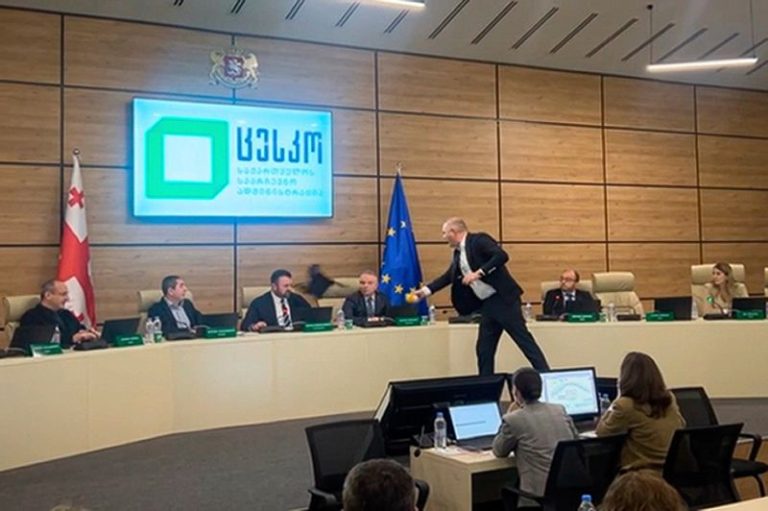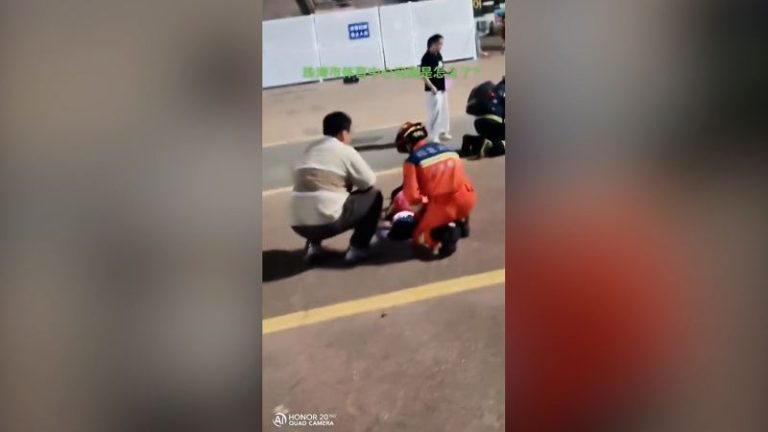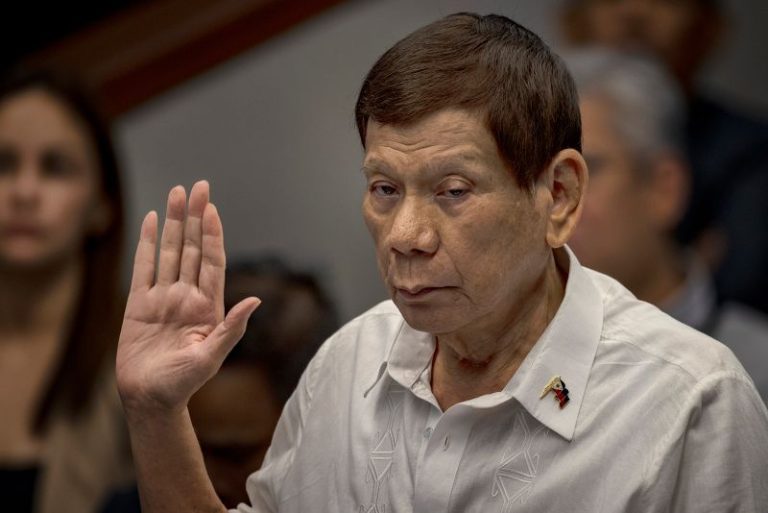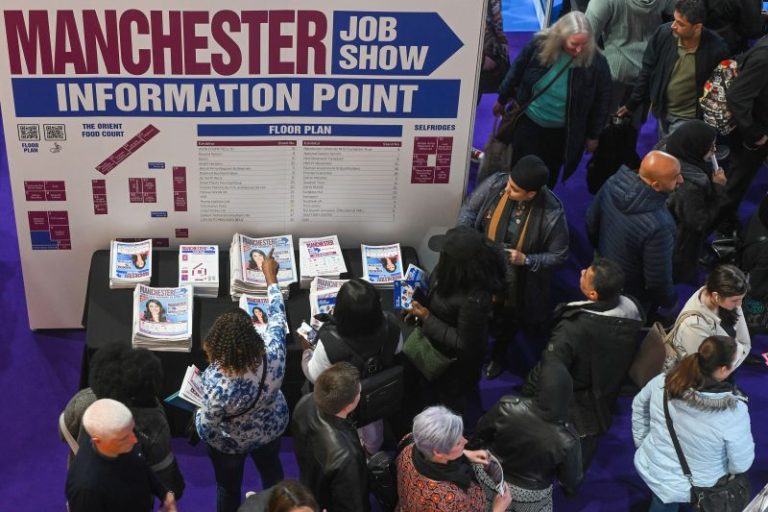Since winning the election last week, President-elect Donald Trump has begun evaluating and rolling out his picks for his Cabinet and other top roles.
Here’s a roundup of whom Trump has picked to fill top jobs in his administration:
Publicly announced
White House Chief of Staff – Susie Wiles
U.S. Ambassador to the United Nations – Elise Stefanik
National Security Adviser – Michael Waltz
‘Border Czar’ – Tom Homan
Ambassador to Israel – Mike Huckabee
Environmental Protection Agency Administrator – Lee Zeldin
Middle East Envoy – Steven Witkoff
White House Counsel – William McGinley
CIA Director – John Ratcliffe
Department of Government Efficiency – Elon Musk, Vivek Ramaswamy
Secretary of Defense – Pete Hegseth
Homeland Security Secretary – Kristi Noem
Deputy Chief of Staff – Dan Scavino
Deputy Chief of Staff for Policy and Homeland Security Advisor – Stephen Miller
Deputy Chief of Staff for Legislative, Political and Public Affairs – James Blair
Deputy Chief of Staff for Communications and Personnel – Taylor Budowich
Director of National Intelligence – Tulsi Gabbard
Secretary of State – Marco Rubio
U.S. Attorney General – Matt Gaetz
Secretary of Health and Human Services – Robert F. Kennedy Jr.
U.S. Attorney for Southern District of New York – Jay Clayton
Secretary of Veterans Affairs – Doug Collins
U.S Solicitor General – Dean John Sauer
Deputy Attorney General – Todd Blanche
Secretary of the Interior – Doug Burgum
Communications Director – Steven Cheung
Director of Presidential Personnel – Sergio Gor
Press Secretary – Karoline Leavitt
Assistant to the President and Staff Secretary – William Owen Scharf
Secretary of Energy – Chris Wright
White House Chief of Staff – Susie Wiles
Wiles has been widely lauded for heading Trump’s successful campaign this year, having run Trump’s campaign operations in Florida in 2016 and 2020. She maintained close ties with the president-elect throughout the Biden administration and signed on as CEO of Trump’s Save America PAC in 2021.
‘Susie is tough, smart, innovative and is universally admired and respected. Susie will continue to work tirelessly to Make America Great Again. It is a well deserved honor to have Susie as the first-ever female Chief of Staff in United States history. I have no doubt that she will make our country proud,’ Trump said in a statement.
US Ambassador to the United Nations – Elise Stefanik
Elise Stefanik, the New York Republican representative and current House GOP Conference Chair has been an attack dog for Trump in Congress.
She is a staunch supporter of Israel, having made headlines for her combative lines of questioning of Ivy League university presidents over their handling of anti-Israel protests, some of which prompted the presidents to resign.
National Security Adviser – Michael Waltz
On Tuesday, Trump announced the Florida Republican representative and former Army Green Beret would be his national security adviser. He’s decidedly a hawk on China and Iran.
‘Mike retired as a Colonel, and is a nationally recognized leader in National Security, a bestselling author, and an expert on the threats posed by China, Russia, Iran, and global terrorism,’ Trump said in a statement.
‘Mike has been a strong champion of my America First Foreign Policy agenda, and will be a tremendous champion of our pursuit of Peace through Strength!’
‘Border Czar’ – Tom Homan
Homan, the former acting director of U.S. Immigration and Customs Enforcement, was an architect of Trump’s zero-tolerance policy during his first administration, one that led to backlash from family separations at the border.
Homan has served under six administrations and presidents in both parties, dating back to the Reagan era, as a rank-and-file Border Patrol agent. He was appointed to the position of executive associate director of enforcement and removal operations for ICE under President Obama.
While serving at a ‘czar’ level rather than in an official Cabinet position, Homan will be in charge of ‘the Southern Border, the Northern Border, all Maritime, and Aviation Security,’ Trump announced on Truth Social.
‘I’ve known Tom for a long time, and there is nobody better at policing and controlling our Borders,’ Trump wrote. ‘Likewise, Tom Homan will be in charge of all Deportation of Illegal Aliens back to their Country of Origin. Congratulations to Tom. I have no doubt he will do a fantastic, and long awaited for, job.’
Ambassador to Israel – Mike Huckabee
Huckabee, the former governor of Arkansas, is a staunch supporter of Israel, prompted by his evangelical faith.
‘Mike has been a great public servant, Governor, and Leader in Faith for many years. He loves Israel, and the people of Israel, and likewise, the people of Israel love him’, a statement attached to Trump’s Truth Social post said. ‘Mike will work tirelessly to bring about Peace in the Middle East!’
Environmental Protection Agency Administrator – Lee Zeldin
Zeldin, a former House Republican from New York, had a notably strong, but unsuccessful, showing in the race for governor against Kathy Hochul in 2022.
During that race, he called for New York to lift its ban on fracking. He also lost his House race for re-election in 2022 but has maintained ties with the Trump team.
Middle East Envoy – Steven Witkoff
Witkoff, a real estate investor, landlord, and the founder of the Witkoff Group, was tapped as Trump’s Middle East enjoy. He campaign with Trump during the campaign.
In his announcement, Trump said that Witkoff would be an ‘unrelenting Voice for PEACE’ in the highly-contentious region.
White House Counsel – William McGinley
McGinley, who served in Trump’s first presidential term as White House cabinet secretary, returns to the White House for Trump’s second term. The White House Counsel conducts key behind-the-scene research into potential Supreme Court nominees.
CIA Director – John Ratcliffe
Ratcliffe previously served under Trump during his first term as Director of National Intelligence (DNI). He will head the Central Intelligence Agency (CIA).
In 2020, he was awarded the National Security Medal, the nation’s highest honor for distinguished achievement in the field of intelligence and national security.
Department of Government Efficiency – Elon Musk, Vivek Ramaswamy
Billionaire Elon Musk and former GOP presidential candidate Vivek Ramaswamy were tapped to lead the Department of Government Efficiency, or DOGE.
Trump said that the pair will work together to ‘dismantle Government Bureaucracy, slash excess regulations, cut wasteful expenditures, and restructure Federal Agencies.’
‘It will become, potentially, ‘The Manhattan Project’ of our time,’ the announcement on Tuesday evening said. ‘Republican politicians have dreamed about the objectives of ‘DOGE’ for a very long time.’
Secretary of Defense – Pete Hegseth
Trump nominated Hegseth to lead the Department of Defense. He would need to be confirmed by the Senate to assume the position. Hegseth has long championed a strong military and veterans causes.
He served in Iraq and Afghanistan as an Army infantry officer, being awarded two Bronze Stars and the Combat Infantryman’s Badge. Hegseth was a host on ‘FOX & Friends Weekend’ and FOX Nation until his last day on Tuesday.
‘Nobody fights harder for the Troops, and Pete will be a courageous and patriotic champion of our ‘Peace through Strength’ policy,’ Trump said.
Homeland Security Secretary – Kristi Noem
Trump announced on Tuesday that South Dakota Governor Kristi Noem is his pick for secretary of the Department of Homeland Security. Noem would need to be approved by the Senate to assume the position.
DHS oversees U.S. Customs and Border Protection, Immigration and Customs Enforcement, the U.S. Secret Service and the Federal Emergency Management Agency.
‘She was the first Governor to send National Guard Soldiers to help Texas fight the Biden Border Crisis, and they were sent a total of eight times,’ the Trump transition team said in a statement on Tuesday. ‘She will work closely with ‘Border Czar’ Tom Homan to secure the Border, and will guarantee that our American Homeland is secure from our adversaries.’
Deputy Chief of Staff – Dan Scavino
Trump announced that his longtime aide Dan Scavino Jr. will return to the White House as an assistant to the president and deputy chief of staff.
‘Scavino was a Trump Campaign Senior Advisor and remains one of President Trump’s longest serving and most trusted aides,’ the Trump transition team said.
Deputy Chief of Staff for Policy and Homeland Security Advisor – Stephen Miller
Trump announced Stephen Miller would serve as deputy chief of staff for policy in his administration. Miller was a senior adviser in Trump’s first term. He helped craft many of Trump’s hard-line speeches and plans on immigration.
Since Trump left office, Miller has served as the president of America First Legal, an organization of former Trump advisers fashioned as a conservative version of the American Civil Liberties Union, challenging the Biden administration, media companies, universities and others over issues such as freedom of speech and religion and national security.
Miller has advocated for mass deportations during the second Trump term.
Deputy Chief of Staff for Legislative, Political and Public Affairs – James Blair
Trump announced James Blair would serve in the White House as an assistant to the president and deputy chief of staff for legislative, political and public affairs.
‘Blair was the Trump Campaign and Republican National Committee Political Director, managing hundreds of staff and overseeing a wide portfolio of political operations and programs,’ the Trump transition team said.
Blair was in charge of the Trump campaign’s get-out-the-vote operations in key battleground states, which Trump swept on Election Day.
Deputy Chief of Staff for Communications and Personnel – Taylor Budowich
Trump announced that Taylor Budowich will join him in the White House as an assistant to the president and deputy chief of staff for communications and personnel.
‘Prior to joining the Trump Campaign, Budowich served in a senior role in President Trump’s Leadership PAC, Save America, and as CEO of the pro-Trump Super PAC, MAGA Inc.,’ the Trump transition team said.
‘Dan, Stephen, James, and Taylor were ‘best in class’ advisors on my winning campaign, and I know they will honorably serve the American people in the White House,’ Trump said in a statement announcing his senior campaign aides would be promoted to the White House. ‘They will continue to work hard to Make America Great Again in their respective new roles.’
Director of National Intelligence – Tulsi Gabbard
Tulsi Gabbard, a former Democratic congresswoman from Hawaii, is Trump’s pick for the position of director of national intelligence. The announcement was made on Wednesday.
The cabinet-level position involves overseeing the intelligence community and advising Trump and the National Security Council on intelligence matters. Gabbard is an Iraq War veteran and a U.S. Army reservist.
‘As a former Candidate for the Democrat Presidential Nomination, she has broad support in both Parties – She is now a proud Republican!’ Trump said in a statement. ‘I know Tulsi will bring the fearless spirit that has defined her illustrious career to our Intelligence Community, championing our Constitutional Rights, and securing Peace through Strength. Tulsi will make us all proud!’
Secretary of State – Marco Rubio
President-elect Donald Trump nominated Sen. Marco Rubio, R-Fla., to serve as his Secretary of State.
‘It is my Great Honor to announce that Senator Marco Rubio, of Florida, is hereby nominated to be The United States Secretary of State. Marco is a Highly Respected Leader, and a very powerful Voice for Freedom,’ Trump said in a statement. ‘He will be a strong Advocate for our Nation, a true friend to our Allies, and a fearless Warrior who will never back down to our adversaries.’
Rubio is known as an Iran and China hawk. He is a top GOP member of the Senate Intelligence Committee and ran for president in 2016.
U.S. Attorney General – Matt Gaetz
Rep. Matt Gaetz, R-Fla., is Trump’s pick for attorney general. The decision was made in an announcement on Wednesday.
If confirmed, Gaetz will oversee the Department of Justice after Trump’s inauguration in January.
‘Matt is a deeply gifted and tenacious attorney, trained at the William & Mary College of Law, who has distinguished himself in Congress through his focus on achieving desperately needed reform at the Department of Justice,’ the president-elect said in Truth Social post. ‘Few issues in America are more important than ending the partisan Weaponization of our Justice System.’
‘He is a Champion for the Constitution and the Rule of Law,’ the post concluded.
Deputy Attorney General – Todd Blanche
Trump named his personal criminal defense attorney Todd Blanche as deputy attorney general. The president-elect said that the 50-year-old lawyer has experience prosecuting gangs – as well as representing Trump in his 2024 criminal trial in New York.
‘I am pleased to announce that Todd Blanche will serve as Deputy Attorney General in my Administration. Todd is an excellent attorney who will be a crucial leader in the Justice Department, fixing what has been a broken System of Justice for far too long,’ Trump announced in a news release.
Secretary of Health and Human Services – Robert F. Kennedy Jr.
Trump announced he will tap former 2024 Democratic presidential candidate Robert F. Kennedy Jr. to lead the Department of Health and Human Services.
‘I am thrilled to announce Robert F. Kennedy Jr. as The United States Secretary of Health and Human Services (HHS). For too long, Americans have been crushed by the industrial food complex and drug companies who have engaged in deception, misinformation, and disinformation when it comes to Public Health,’ Trump said in his announcement Thursday.
‘The Safety and Health of all Americans is the most important role of any Administration, and HHS will play a big role in helping ensure that everybody will be protected from harmful chemicals, pollutants, pesticides, pharmaceutical products, and food additives that have contributed to the overwhelming Health Crisis in this Country. Mr. Kennedy will restore these Agencies to the traditions of Gold Standard Scientific Research, and beacons of Transparency, to end the Chronic Disease epidemic, and to Make America Great and Healthy Again!’ Trump added.
Kennedy dropped out of the presidential race in August and quickly endorsed the Trump-Vance ticket, and has since repeatedly vowed to ‘Make America Healthy Again.’
U.S. Attorney for Southern District of New York – Jay Clayton
President-elect Trump announced Thursday that he is nominating Jay Clayton to serve as U.S. attorney for the Southern District of New York.
‘I am pleased to announce that Jay Clayton, of New York, the Chairman of the U.S. Securities and Exchange Commission during my first term, where he did an incredible job, is hereby nominated to be the U.S. Attorney for the Southern District of New York,’ Trump wrote in a post on Truth Social. ‘Jay is a highly respected business leader, counsel, and public servant.
‘Jay is going to be a strong Fighter for the Truth as we, Make America Great Again,’ the president-elect added.
Secretary of Veterans Affairs – Doug Collins
President-elect Trump announced on Thursday his intent to nominate former Rep. Doug Collins, R-Ga., to serve as secretary of veterans affairs.
‘Doug is a Veteran himself, who currently serves our Nation as a Chaplain in the United States Air Force Reserve Command, and fought for our Country in the Iraq War,’ Trump wrote on Truth Social. ‘We must take care of our brave men and women in uniform, and Doug will be a great advocate for our Active Duty Servicemembers, Veterans, and Military Families to ensure they have the support they need.
‘Thank you, Doug, for your willingness to serve our country in this very important role,’ the president-elect added.
U.S. Solicitor General – Dean John Sauer
Trump announced Dean John Sauer as his pick for U.S. solicitor general.
‘John is a deeply accomplished, masterful appellate attorney, who clerked for Justice Antonin Scalia in the United States Supreme Court, served as Solicitor General of Missouri for six years, and has extensive experience practicing before the U.S. Supreme Court and other Appellate Courts,’ Trump said in the announcement.
Sauer served as solicitor general of Missouri from 2017 to 2023, and represented Trump in his successful appeal to the U.S. Supreme Court in Trump v. United States.
Secretary of the Interior – Doug Burgum
President-elect Trump announced that North Dakota Gov. Doug Burgum will lead the Department of the Interior during a speech at the Americans for Prosperity Gala at Mar-a-Lago.
‘He’s going to be announced [Friday]…I look forward to doing the formal announcement, although this is a pretty big announcement right now, actually,’ Trump said. ‘He’s going to head the Department of Interior, and he’s going to be fantastic.’
Burgum, a multi-millionaire former software company CEO turned two-term governor, launched a White House bid in June 2023. The governor made energy and natural resources a key part of his campaign for the GOP nomination.
After he dropped out of the race, Burgum became a high profile surrogate for the former president, appearing on the campaign trail and in media hits on Trump’s behalf. He was in consideration as Trump’s running mate this past summer before Sen. JD Vance of Ohio was picked as the Republican Party’s vice presidential nominee.
Communications Director – Steven Cheung
Trump announced Friday, Nov. 15, that Steven Cheung would return to the White House as assistant to the president and director of communications. Cheung previously served as communications director for the Trump-Vance campaign and was the White House director of strategic response in Trump’s first term.
Director of Presidential Personnel – Sergio Gor
Trump also confirmed Friday that Sergio Gor will join the White House as director of the presidential personnel office. Gor, an ally and business partner of Donald Trump Jr.’s, was in charge of the pro-Trump political action committee Right For America and previously worked in Republican Sen. Rand Paul’s office.
‘Steven Cheung and Sergio Gor have been trusted Advisors since my first Presidential Campaign in 2016, and have continued to champion America First principles throughout my First Term, all the way to our HIstoric Victory in 2024,’ Trump said in a statement. ‘I am thrilled to have them join my White House, as we Make America Great Again!’
Press Secretary – Karoline Leavitt
Trump announced campaign spokesperson Karoline Leavitt will serve as White House press secretary for his upcoming administration.
‘Karoline Leavitt did a phenomenal job as the National Press Secretary on my Historic Campaign, and I am pleased to announce she will serve as White House Press Secretary,’ Trump said in a statement Friday evening.
‘Karoline is smart, tough, and has proven to be a highly effective communicator. I have the utmost confidence she will excel at the podium, and help deliver our message to the American People as we, Make America Great Again.’
Leavitt, 27, will be the youngest White House press secretary in U.S. history, unseating Nixon administration press secretary Ron Ziegler, who was 29 when he served in the role from 1969-1974.
Assistant to the President and Staff Secretary – William Owen Scharf
William Owen Scharf, one of Trump’s lawyers, will serve as Assistant to the President and Staff Secretary starting in January.
In a statement on Saturday, the President-elect wrote that Scharf ‘is a highly skilled attorney who will be a crucial part of my White House team.’
‘[Scharf] has played a key role in defeating the Election Interference and Lawfare waged against me, including by winning the Historic Immunity Decision in the Supreme Court,’ Trump’s statement read.
Secretary of Energy – Chris Wright
Chris Wright, the CEO and founder of Liberty Energy, has been picked to lead the Department of Energy, according to a statement President-elect Trump released on Saturday.
‘I am thrilled to announce that Chris Wright will be joining my Administration as both United States Secretary of Energy, and Member of the newly formed Council of National Energy,’ Trump’s statement read, adding that Wright ‘has been a leading technologist and entrepreneur in Energy.’
Wright graduated from MIT with a degree in mechanical engineering, according to Liberty Energy’s website. He also completed graduate work in electrical engineering at University of California, Berkeley and MIT.
‘[Wright] is a self-described tech nerd turned entrepreneur and a dedicated humanitarian on a mission to better human lives by expanding access to abundant, affordable, and reliable energy,’ the company’s website reads.










